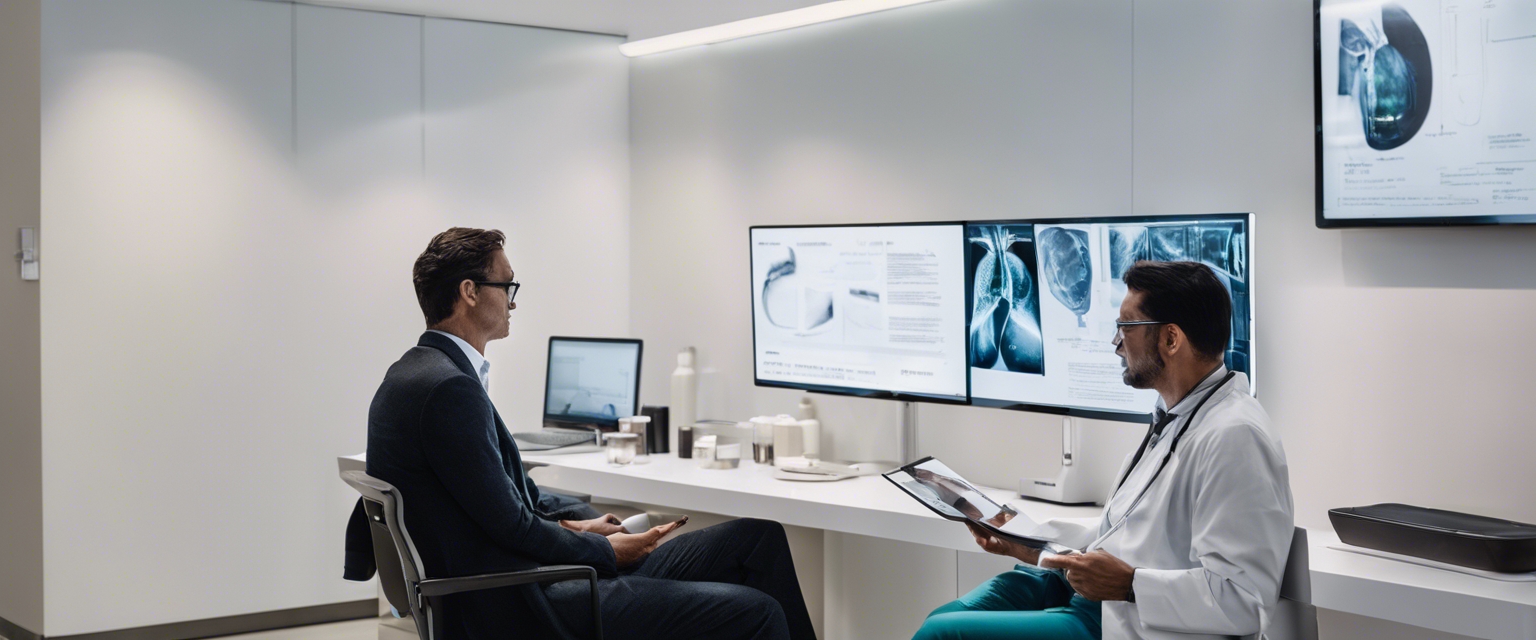The importance of regular health check-ups
In today's fast-paced world, maintaining good health is more important than ever. Regular health check-ups are a crucial part of a proactive approach to healthcare, allowing individuals to stay informed about their health status and make informed decisions. For residents of Tallinn and Narva, particularly those experiencing gastrointestinal issues or seeking preventive health consultations, understanding the importance of regular health check-ups can lead to better health outcomes and improved quality of life.
Benefits of Regular Health Check-Ups
One of the primary benefits of regular health check-ups is the early detection of potential health problems. By identifying issues before they become serious, individuals can receive timely treatment and avoid complications. This is particularly important for conditions like hypertension, diabetes, and certain cancers, where early intervention can significantly improve prognosis.
Regular check-ups provide an opportunity for healthcare providers to offer preventive measures, such as vaccinations and lifestyle advice, to reduce the risk of developing diseases. For those with busy lifestyles, these preventive strategies can be a key component in maintaining long-term health and wellness.
For individuals with chronic health conditions, regular check-ups are essential for monitoring disease progression and adjusting treatment plans as needed. This ongoing management helps to prevent complications and maintain optimal health.
During a health check-up, healthcare providers can offer personalized advice on nutrition, exercise, and other lifestyle factors that contribute to overall well-being. This tailored guidance is invaluable for those seeking to improve their health and prevent future issues.
Key Components of a Health Check-Up
A comprehensive physical examination is a cornerstone of any health check-up. This includes assessing vital signs, examining the body for any abnormalities, and discussing any symptoms or concerns with the patient.
Laboratory tests, such as blood and urine analyses, provide critical information about a person's health. These tests can detect a wide range of conditions, from anemia to kidney disease, and help guide further diagnostic and treatment decisions.
Depending on individual risk factors and symptoms, imaging tests like X-rays, ultrasounds, or MRIs may be recommended. These tests offer detailed insights into the body's internal structures and can help identify issues that are not apparent through physical examination alone.
For those with specific health concerns, consultations with specialists such as gastroenterologists or gynecologists may be part of a comprehensive check-up. These experts provide targeted evaluations and recommendations based on their specialized knowledge.
Frequency of Health Check-Ups
The frequency of health check-ups varies based on age, health status, and risk factors. Generally, adults should aim for an annual check-up, but those with chronic conditions or higher risk factors may require more frequent visits. Consulting with a healthcare provider can help determine the appropriate schedule for individual needs.
Overcoming Barriers to Regular Health Check-Ups
Busy schedules can make it challenging to prioritize health check-ups. However, many healthcare providers, including MED4U OÜ, offer flexible appointment times and online booking options to accommodate hectic lifestyles.
Cost can be a barrier to regular check-ups, but many insurance plans cover preventive services. Additionally, investing in regular check-ups can save money in the long run by preventing costly treatments for advanced diseases.
Fear of medical procedures or receiving bad news can deter individuals from seeking regular check-ups. Building a trusting relationship with a healthcare provider and focusing on the benefits of early detection can help alleviate these concerns.
The Role of Technology in Facilitating Health Check-Ups
Technology has made it easier than ever to schedule health check-ups. Online booking systems allow patients to find convenient appointment times without the hassle of phone calls or office visits.
Telemedicine offers a convenient option for consultations, especially for those with mobility issues or living in remote areas. Virtual visits can provide initial assessments and follow-up care, reducing the need for in-person visits.
Health apps enable individuals to track vital signs, medication adherence, and lifestyle habits. These tools can enhance communication with healthcare providers and support ongoing health management.






Comments (0)